Legislative Overview – January 16-17
As time permits, we will go more in depth and expand our purview. Until then, here again is a summary of the updates:
20 Senate Bills Passed and awaiting House Response: SB2035, SB2036, SB2042, SB2043, SB2062, SB2081, SB2093, SB2101, SB2119, SB2121, SB2122, SB2123, SB2124, SB2125, SB2126, SB2127, SB2136, SB2145, SB2146, as well as HCR3004 Those that failed include: SB2094, SB 2095, SB2115.
32 House Bills Passed and awaiting Senate Response: HB1035, HB1039, HB1041, HB1042, HB1043, HB1044, HB1062, HB1071, HB1072, HB1077, HB1078, HB1080, HB1087, HB1096, HB1097, HB1099, HB1108, HB1109, HB1110, HB1135, HB1137, HB1138, HB1140, HB1148, HB1154, HB1158, HB1162, HB1164, HB1175, HB1180, HB1186. Those that failed include: HB1121, HB1130, HB1157, HB1185.
Of Interest in the business world are:
SB2122: https://ndlegis.gov/assembly/69-2025/regular/documents/25-0257-03000.pdf
North Dakota Senate Bill 2122 (SB 2122) is about creating rules for managing commercial buildings when the owners can’t pay their loans, which is called foreclosure. It introduces something called the Uniform Commercial Real Estate Receivership Act. Here’s what it means in simple terms:
- What’s a Receiver? A receiver is a person or company that takes care of a property when the owner is in financial trouble. They make sure the building is managed properly, like collecting rent, paying bills, and keeping it in good condition.
- Why is This Important? If a building owner can’t handle their property because they’re out of money, this law would make sure someone responsible steps in to take care of it. This helps protect the value of the property and keeps things running smoothly for tenants and creditors.
- What Does the Law Do? It creates clear rules for how receivers are chosen, what they can do, and how they should manage the property. This makes the process fair and organized.
In short, this bill is designed to help businesses and communities by making sure commercial buildings are taken care of during tough financial times.
SB2123: https://ndlegis.gov/assembly/69-2025/regular/documents/25-0259-03000.pdf
This Bill is about creating a new law called the Uniform Special Deposits Act. This law would set rules for how special deposits, like money or valuable items held by a bank or another institution, are managed and protected. Here’s how it might affect people and businesses in simple terms:
- Better Protection for Deposits: The law could make sure that money or valuables placed in special accounts are handled fairly and securely.
- Clearer Rules: It would create specific guidelines for how these deposits are managed, which could help avoid confusion or disputes.
- More Trust in Financial Institutions: By having clear laws, people and businesses might feel more confident about using banks or other institutions to hold important assets.
This bill aims to make financial transactions involving special deposits safer and more organized for everyone involved and it addresses two different topics, depending on the context:
- Uniform Special Deposits Act:
- This version of SB 2123 focuses on creating rules for managing “special deposits,” which are funds or valuable items held by banks or other institutions for safekeeping. The goal is to ensure these deposits are handled securely and fairly, with clear guidelines for their use and protection.
- Censorship of Materials:
- Another version of SB 2123 proposes expanding restrictions on books or materials that include descriptions or images of nudity in a sexual context. It would make it illegal for businesses that allow minors to enter to display such materials. This could affect booksellers, libraries, schools, and museums by requiring them to remove or restrict access to certain books, potentially limiting educational resources and free expression.
SB 2124: https://ndlegis.gov/assembly/69-2025/regular/documents/25-8129-01001m.pdf
This bill focuses on insurance regulations. It aims to create new sections in the North Dakota Century Code that define certain terms related to insurance companies and establish rules for examining their records. The bill also includes an emergency clause, meaning it would take effect immediately if passed.
- Setting clear definitions for insurance companies to avoid confusion.
- Making sure insurance companies keep proper records and follow rules.
- Allowing these changes to be implemented quickly if needed.
This bill is designed to improve how insurance companies are regulated and ensure they operate fairly and transparently. It amends and enacts provisions in the North Dakota Century Code related to insurance company inquiries and data reporting. It introduces a framework for “data calls” allowing the Insurance Commissioner to request information from companies and enforce compliance with confidentiality protections. It requires insurance companies to file annual market conduct statements and provides discretion to the Commissioner to exempt companies. The bill also includes confidentiality provisions for examination records and emergency enactment.
Stakeholders, particularly insurance companies, may face increased regulatory reporting requirements but gain clarity on data privacy rules.
SB2125: https://ndlegis.gov/assembly/69-2025/regular/documents/25-8132-01000.pdf
This bill updates the North Dakota Century Code to revise licensing and regulatory requirements for insurance producers and public adjusters. Key provisions include mandating electronic mail addresses for regulatory use, adjustments to service of process rules, and updates to licensing renewal, suspension, and continuing education procedures for insurance producers and public adjusters. It introduces fines for failure to update personal or business information and clarifies license reinstatement processes.
Impact:
- Employers/Insurance Businesses: Increased administrative responsibilities for compliance.
- Producers/Adjusters: Additional requirements for maintaining and monitoring email.
It may slightly decrease constitutional liberty due to increased regulatory oversight.
HB1062: https://ndlegis.gov/assembly/69-2025/regular/documents/25-8064-01000.pdf
This House Bill proposes amendments to Section 49-04-07 of the North Dakota Century Code, focusing on public utilities and the prohibition of unreasonable preferences or disadvantages. The bill clarifies the restrictions on public utilities regarding discrimination in rates or services and allows reasonable agreements with customers or employees if approved by the Public Service Commission. Additionally, it repeals three sections related to common carriers, permissible discrimination, long and short hauls, and freight pooling.
- Impact on Stakeholders:
- Public Utilities: Must ensure compliance with updated non-discrimination rules.
- Customers/Localities: Could benefit from improved fairness in utility services.
HB1080: https://ndlegis.gov/assembly/69-2025/regular/documents/25-8107-01000.pdf
The bill proposes amendments to regulations governing appraisal management companies in North Dakota. It revises definitions, exemptions, and requirements, including provisions on owner qualifications and the management of appraiser panels. It seeks to clarify oversight responsibilities and address standards for appraisal practices. Key stakeholders include real estate appraisers, financial institutions, and appraisal management companies.
This bill could impact employers in the appraisal and real estate sectors by introducing compliance obligations or modifying existing operations.
HB1087: https://ndlegis.gov/assembly/69-2025/regular/documents/25-8128-01000.pdf
House Bill 1087 revises licensing requirements for administrators of life and health insurance and pharmacy benefit managers in North Dakota. It replaces the term “certificate of authority” with “license,” outlines conditions for issuing or revoking licenses, and imposes penalties for noncompliance, including fines or felony charges. Key stakeholders include insurance administrators, pharmacy benefit managers, and the state insurance commissioner.
This bill could increase regulatory oversight, affecting compliance costs and operational requirements for these businesses.
Today marks a significant day in U.S. politics as it is both the deadline for large batches of bills in the North Dakota Legislature and the inauguration of Donald Trump as the 47th president of the United States.
- Today is the final day for submitting large batches of bills, particularly those that require funding appropriations. Legislators are individually limited to adding no more than three bills to the existing slate in the coming week.
- This dual significance of legislative deadlines and a presidential inauguration highlights a pivotal moment in American governance. The collaboration among legislators and the new administration will be crucial in addressing upcoming fiscal challenges and fulfilling campaign promises. Get Educated. Stay Educated. Let’s keep them accountable to:
“We The People”
Jan Wangler, Executive Director 

